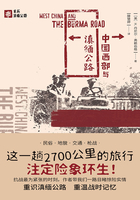
序言
这是一本1941年期间我们的父亲H.丹尼尔·弗赖伯格在中国写下的旅行记。我们很高兴有人能把它翻译成中文并出版。他是在河南长大的,所以对中原特别熟悉,而且在这次旅行之前他已经在那里工作了五年。然而,中国西部(或者西南部)对他来说是一个新的世界。他观察到的都是新鲜事物,也是基于他对中国的了解。
当时整个国家动荡不安。因为日本侵占了黄河以北的地方及所有沿海地区,直到越南。他们也打入了长江谷—宜昌,因此国民政府搬移到了重庆。当时刚开通的滇缅公路连接了昆明和缅甸,一直到印度。它成了从外面提供燃油和其他物资的重要路线。因着我们的父亲要回美国,他决定沿这条路离开中国。在已被日本占领的地方,有很多传教士被关押,大多数被送进了立于山东省的潍县集中营。那些被关起来的人中有我父亲的妹妹玛格丽特·弗赖伯格,她是一名护士,还有他们的母亲也在其中。和我的父亲一样,我的姑姑也回到中国参与服侍了,中国是他们度过童年的地方。
H.丹尼尔·弗赖伯格把他的旅途当作一种机遇。他把经过各省的所有情况都记录了下来。从河南到陕西、甘肃、四川、西康(今西藏东部和四川西部)、贵州和云南。他的目的就是让读者尽可能地对这些地方有所认识,也希望当中一些人或多或少能来到中国的这些地方服务。按着这个目标,他的记录一部分读起来像是在上一堂地理课,一部分像是诉说着自己的遭遇和观察游记,另一部分像是当时的需求和机遇的概述,最后一部分像是批判西方人在亚洲的所作所为。
当时中国正经历着巨大的转变,他的记录为这些地方的生活和环境提供了一个有价值的“快照”。他描述了中国人生活的古旧面目,比如传统的船夫往返于四川的河道,同时也描述了现代的改变,例如因逃难而西迁的众多大学。
更为重要的是,它能让人了解一点上一代国内外基督工作人员的想法和动机。处在现代的我们不容易去体味这些年代的生活环境和服务条件所带来的挑战。除了在交通和物流方面的困难,那个时代还有基础设施的缺乏、有限的社会医疗服务以及土匪和武装人员经常发生冲突所带来的额外的危险。
在20世纪20年代的军阀混战时期,军事冲突普遍存在于华中地区。从1908年到1930年,我们的爷爷卡尔·彼得·弗赖伯格博士在洛阳做医疗工作。记录显示在1924年,每天都有两三百位伤者被送到他们的小医院,战场上双方的人员都有 。当时的医疗人员包括了弗赖伯格博士、埃尔韦拉和赛拉姑姑,以及四位中国医疗助手。1927年,很多传教士都被撤离了。弗赖伯格博士的家人也回到了美国。弗赖伯格博士决定留守,期望等到1930年再回到他的妻子和三个孩子的身边。然而,1930年元月份疫情严重,弗赖伯格博士因从病人身上感染了斑疹伤寒而去世了(在没有用青霉素治疗之前,斑疹伤寒是极度致命的)。另一位在同一个传教站的传教士J.J.林德尔牧师,也在同一周去世,他们被安葬在了一起。我的祖父创立的医疗服务站最终成了洛阳市第一人民医院。
。当时的医疗人员包括了弗赖伯格博士、埃尔韦拉和赛拉姑姑,以及四位中国医疗助手。1927年,很多传教士都被撤离了。弗赖伯格博士的家人也回到了美国。弗赖伯格博士决定留守,期望等到1930年再回到他的妻子和三个孩子的身边。然而,1930年元月份疫情严重,弗赖伯格博士因从病人身上感染了斑疹伤寒而去世了(在没有用青霉素治疗之前,斑疹伤寒是极度致命的)。另一位在同一个传教站的传教士J.J.林德尔牧师,也在同一周去世,他们被安葬在了一起。我的祖父创立的医疗服务站最终成了洛阳市第一人民医院。
尽管面临很多挑战,但传教士们仍然多年坚持着忠诚的服务,也因此有很多类似我的祖父创立的这样的机构在中国被建立起来。1937年,中国已经有254家传教士所建立的医院了,并有资料显示至少有62所大学是由传教士创办的。这些努力的成果是什么呢?除了不少个人的生命被这些事工触摸了(基本上每一次都是关于每个个体的),多种研究统计也记录了,在新教传教事工活跃的国家和地区,人民健康、教育、治理和参与方面的福利水平都有很大改善 。这很值得我们思忖:这种信仰就是这一切努力的动力和成果。
。这很值得我们思忖:这种信仰就是这一切努力的动力和成果。
H.丹尼尔·弗赖伯格的孩子们
We are very happy that this account, which our father wrote about his travels in China in 1941, has been translated into Chinese and is available for publication. H. Daniel Friberg was very familiar with central China, since he had grown up in Henan Province, and had also served there for five years before he made this journey. But western(or southwestern)China was new to him. His observations reflect that newness, while they are also grounded in his general understanding of China.
The national situation was precarious at the time, since the Japanese had invaded and occupied China north of the Yellow River, and controlled the coastal areas down as far as French Indochina(Vietnam). They had also penetrated up the valley of the Yangtze River(Changjiang)as far as Yichang, and so the Central Government had relocated to Chungking(Chongqing). The newly opened Burma Road, connecting Kunming to Burma(Myanmar)and further to India, became a critical lifeline for fuel and other supplies from the outside. Since our father was due to return to the USA, he decided to leave China by this route. Many missionaries who served in areas that were occupied by the Japanese were interned, with most of them impounded in the Weihsien(Wei Xian)internment camp in in Shantung(Shandong). These included our aunt(our father's younger sister, who was a nurse)and their mother. Like our father, our aunt had also returned to serve in China, where they had spent their childhoods.
H. Daniel Friberg took the occasion of his travels as an opportunity to record the situation he found in the provinces on his route out of the country, from Honan(Henan)by way of Shensi(Shaanxi), Kansu(Gansu), Szechwan(Sichuan), Sikang(Xikang, which comprised eastern areas of the present-day Tibet Autonomous Region and western Sichuan), Kweichow(Guizhou), and Yunnan. His intention was to familiarize his readers with these areas as much as possible, with the hope that some of them, whether few or many, might come to serve in these parts of China. With that purpose in view, his account reads partly like a geography lesson, partly as a travelogue recounting his encounters and observations, partly as an overview of the needs and opportunities at the given time, and finally as a critique of western man's involvement in Asia.
As such, his account may give a valuable “snapshot” of life and conditions in these areas, at a time of momentous transition in China. It portrays ancient features of Chinese life(such the traditional boatmen plying the rivers of Sichuan)as well as changes portended by the modern age(such as the refugee universities which relocated to western China).
More importantly, it may provide some insight into the thinking and motivations of foreign and national Christian workers from an earlier generation. It is not easy for us, from a modern perspective, to appreciate the challenges posed by conditions of life and service in these earlier periods. Apart from difficulties involved in transport and logistics, with a lack of infrastructure and limited social and medical services in the pre-modern era, banditry and armed conflict frequently posed additional hazards.
Military conflict became prevalent in central China during the Warlord era through the 1920s. Our father's father, Dr Carl Peter Friberg, worked as a medical doctor in Luoyang from 1908 to 1930. Records show that during certain periods of 1924 between two and three hundred wounded people were brought to their small hospital per day, from both sides of the fighting taking place in the surrounding areas. At the time, the staff consisted of “Dr Friberg, Sister Elvira, Sister Thyra, and four Chinese medical assistants.” In 1927 many missionaries were evacuated, and Dr Friberg's family also returned to the USA. Dr Friberg felt led to stay at his post, expecting to join his wife and their three children, when he would return in 1930. But he died in January 1930 after contracting typhus from his patients during an epidemic.(Typhus was much more deadly in the days before penicillin was available as a treatment.)Another missionary on the same station, Pastor J.J. Lindell, also died the same week, and they were buried together. The medical work which my grandfather started eventually became the First People's Hospital of Luoyang City.
In spite of the challenges involved, years of faithful service resulted in many institutions like this being established in China. In 1937 there were 254 mission hospitals, and some enumerations show 62 colleges and universities that were originally established by missionaries. What was the outcome of these efforts? Apart from the individual lives touched by such work(and ultimately every case is that of an individual person), statistical studies document better standards of well-being in terms of health, education, governance, and participation, in countries and areas where Protestant missions were active. It is worthwhile for us to consider the faith that is both the motivation, and also the outcome, of efforts like these.
The children of H. Daniel Friberg